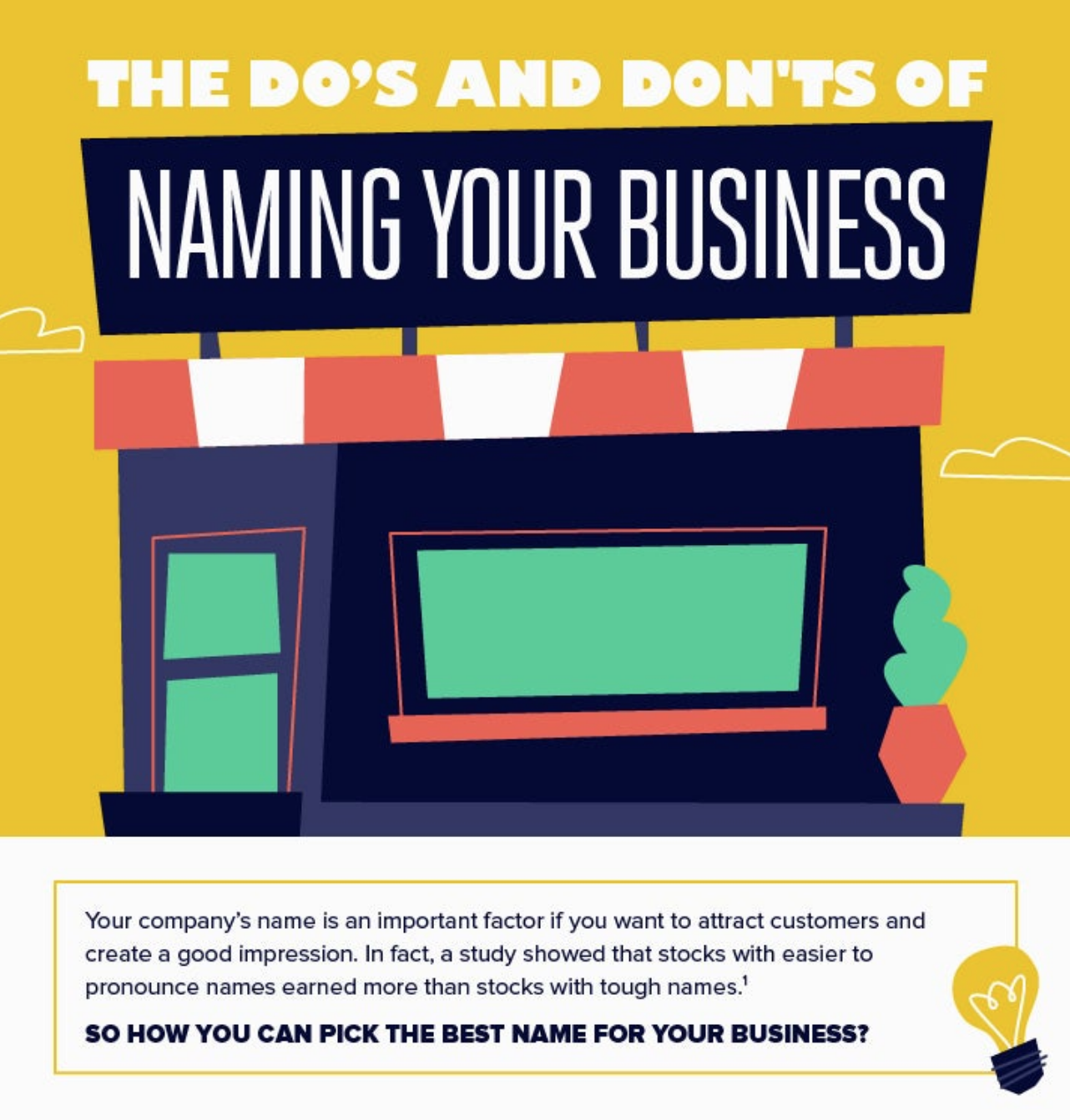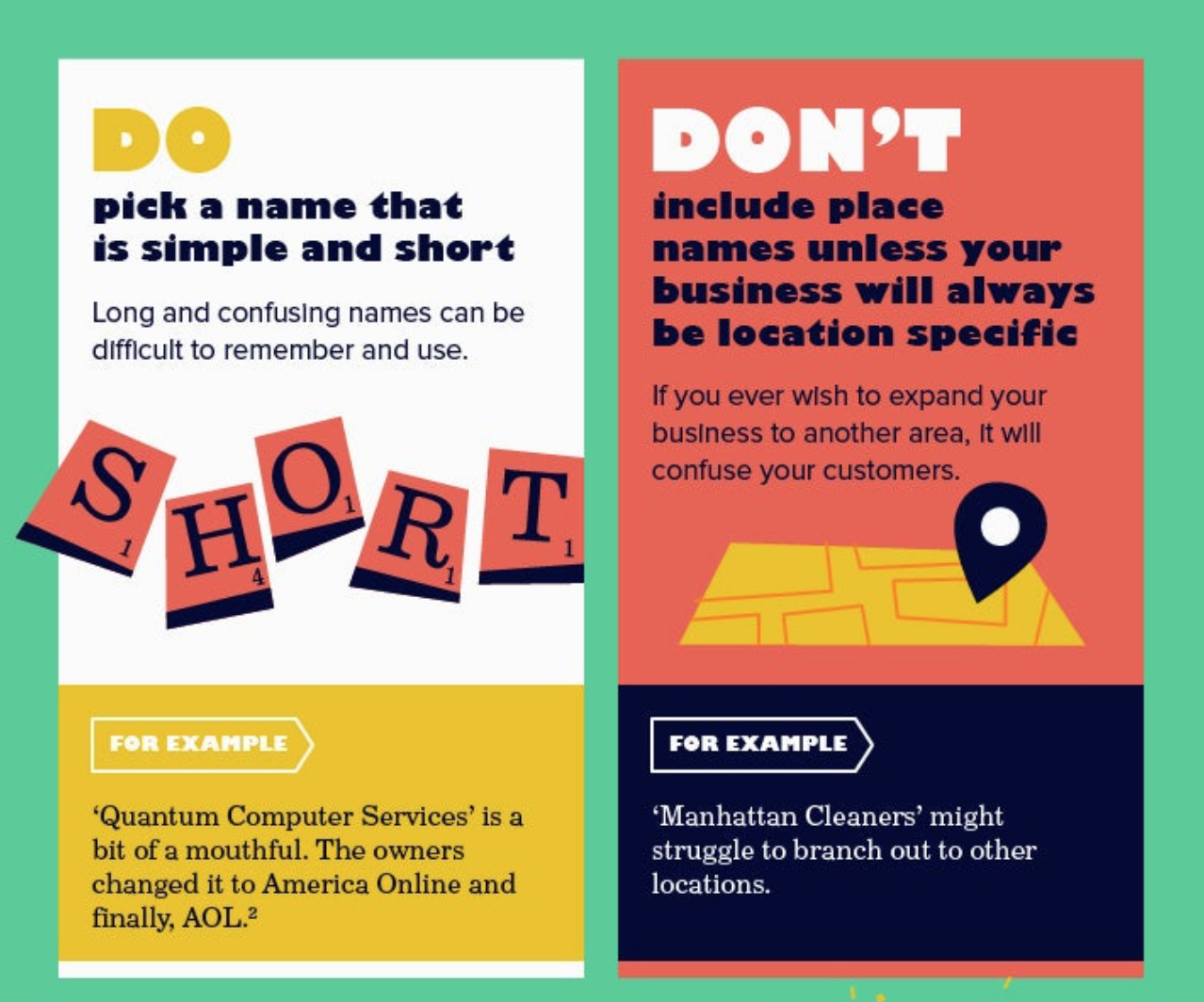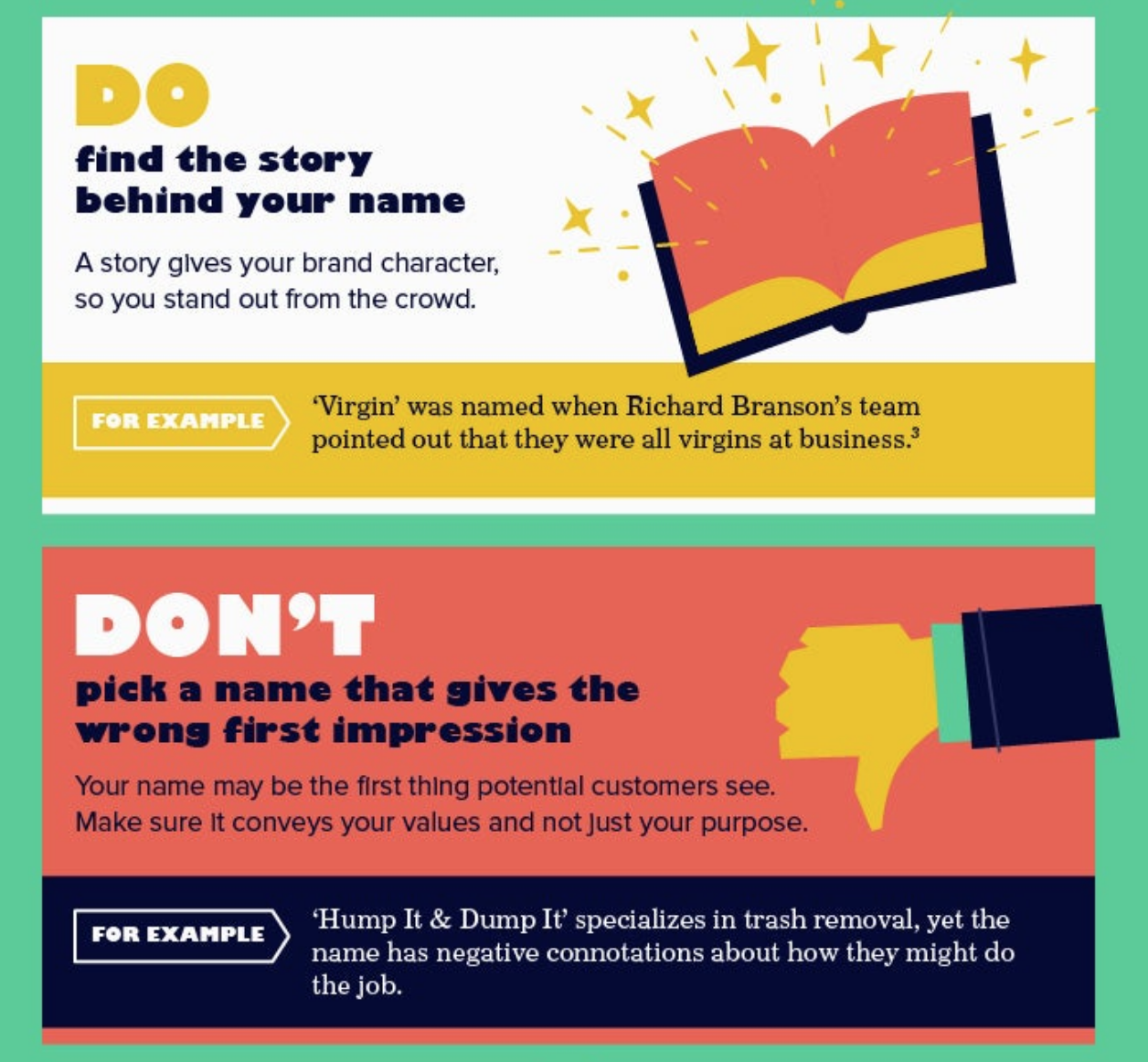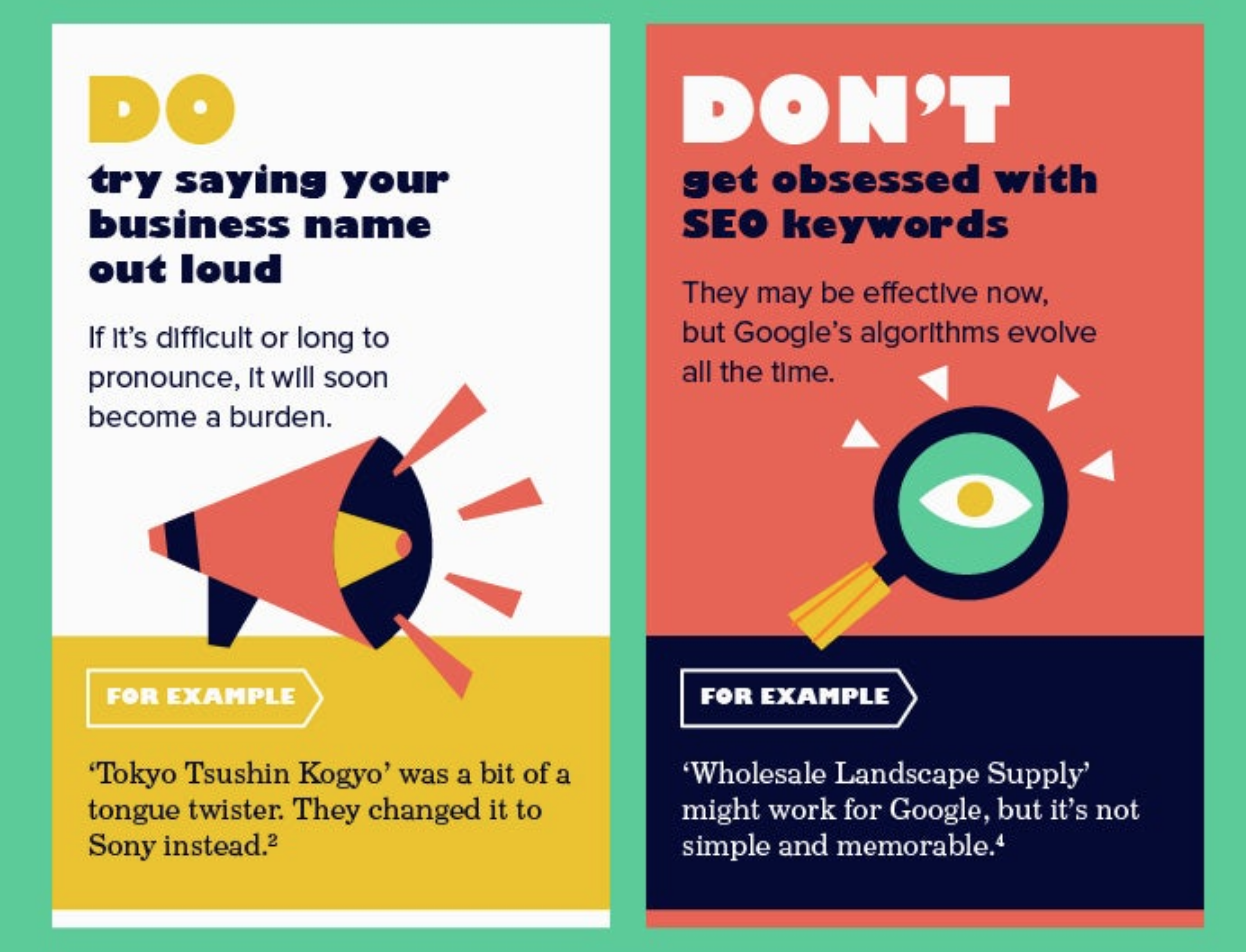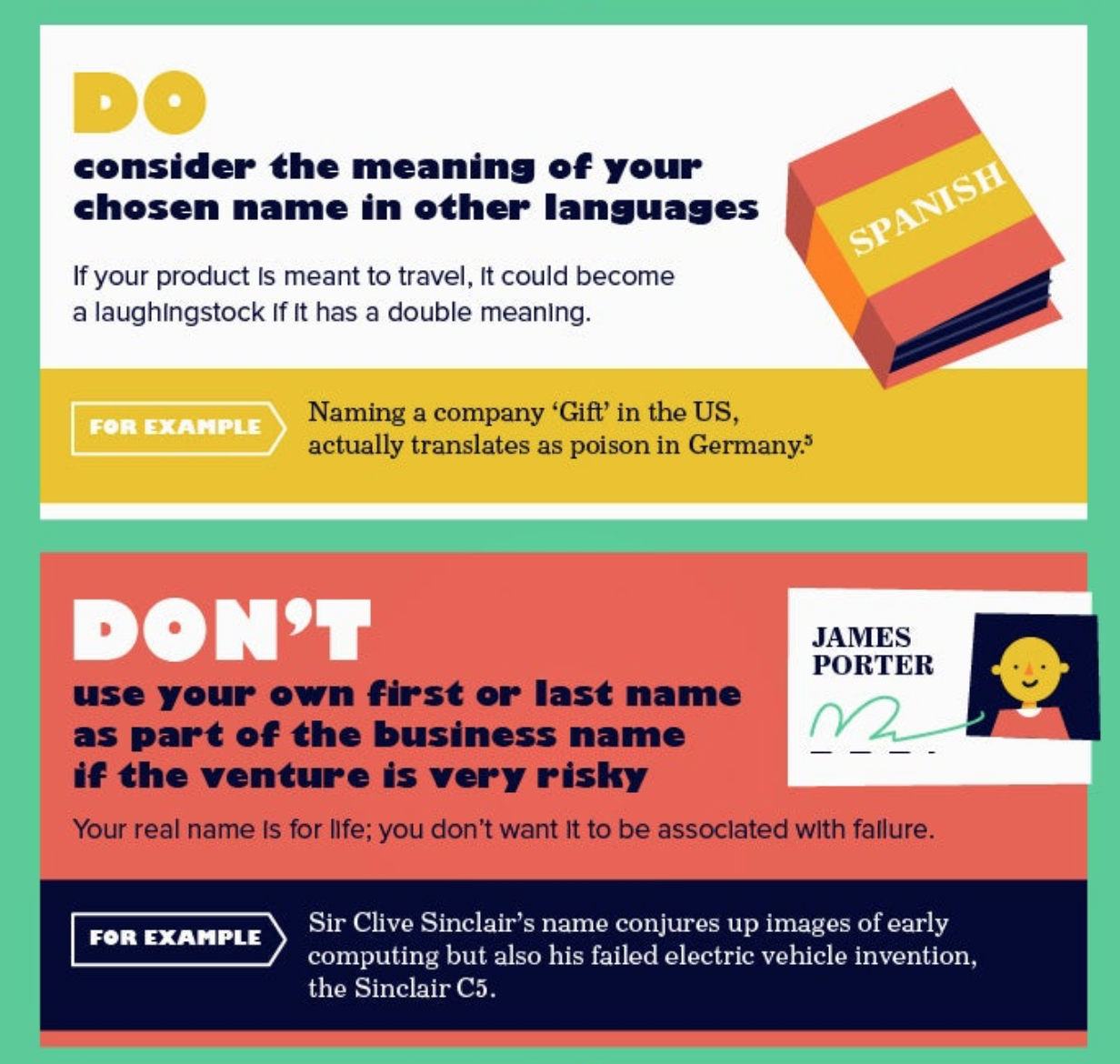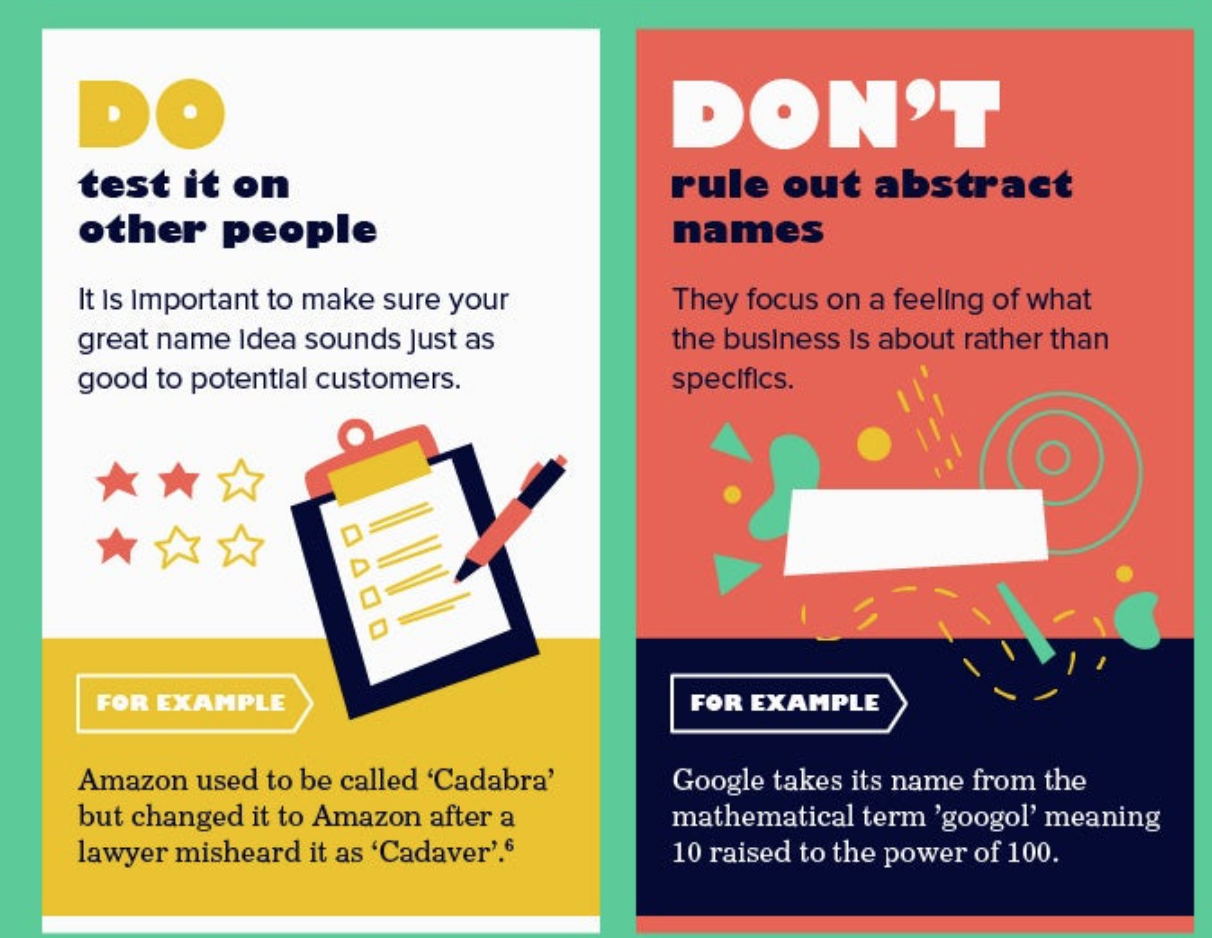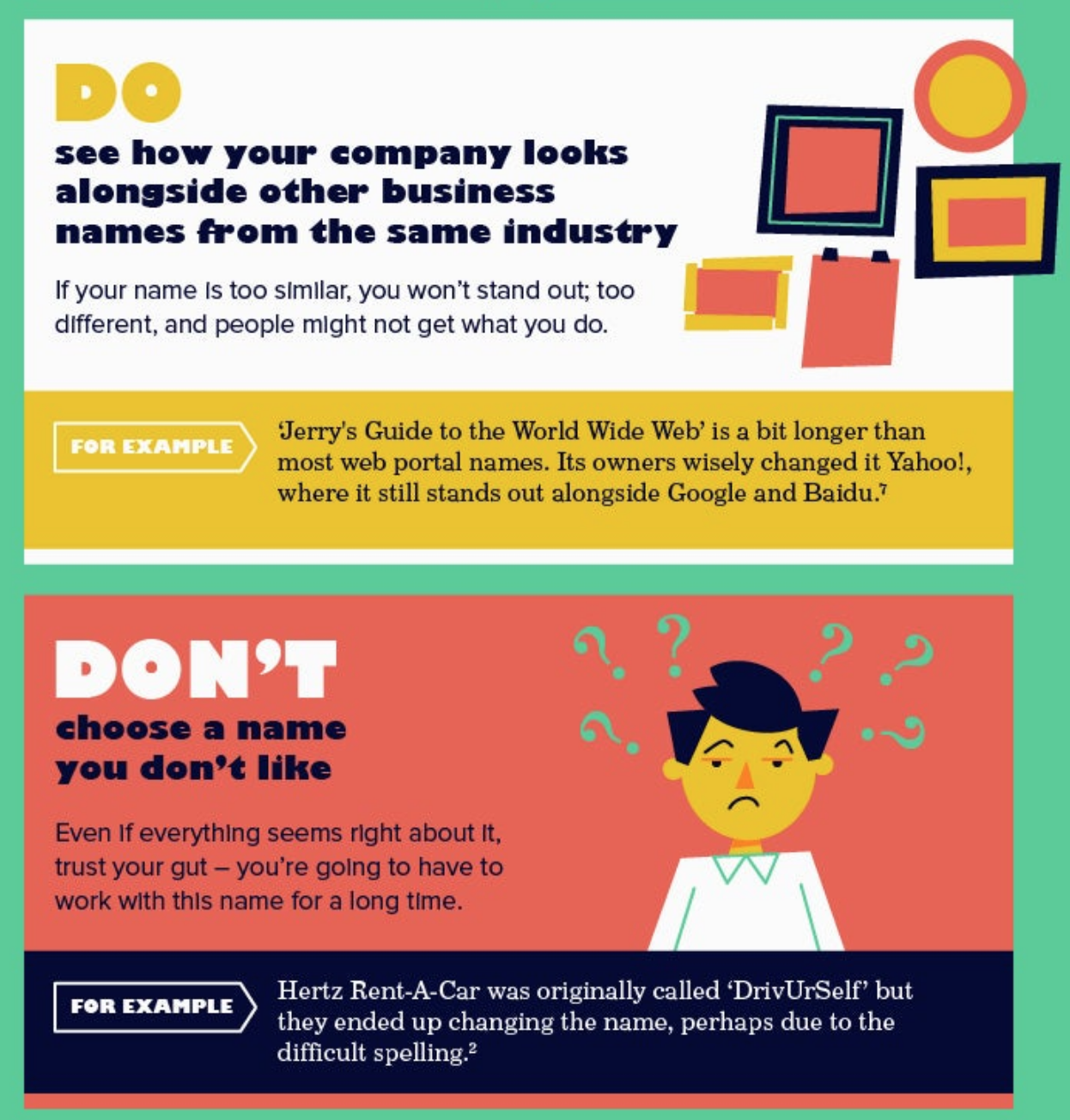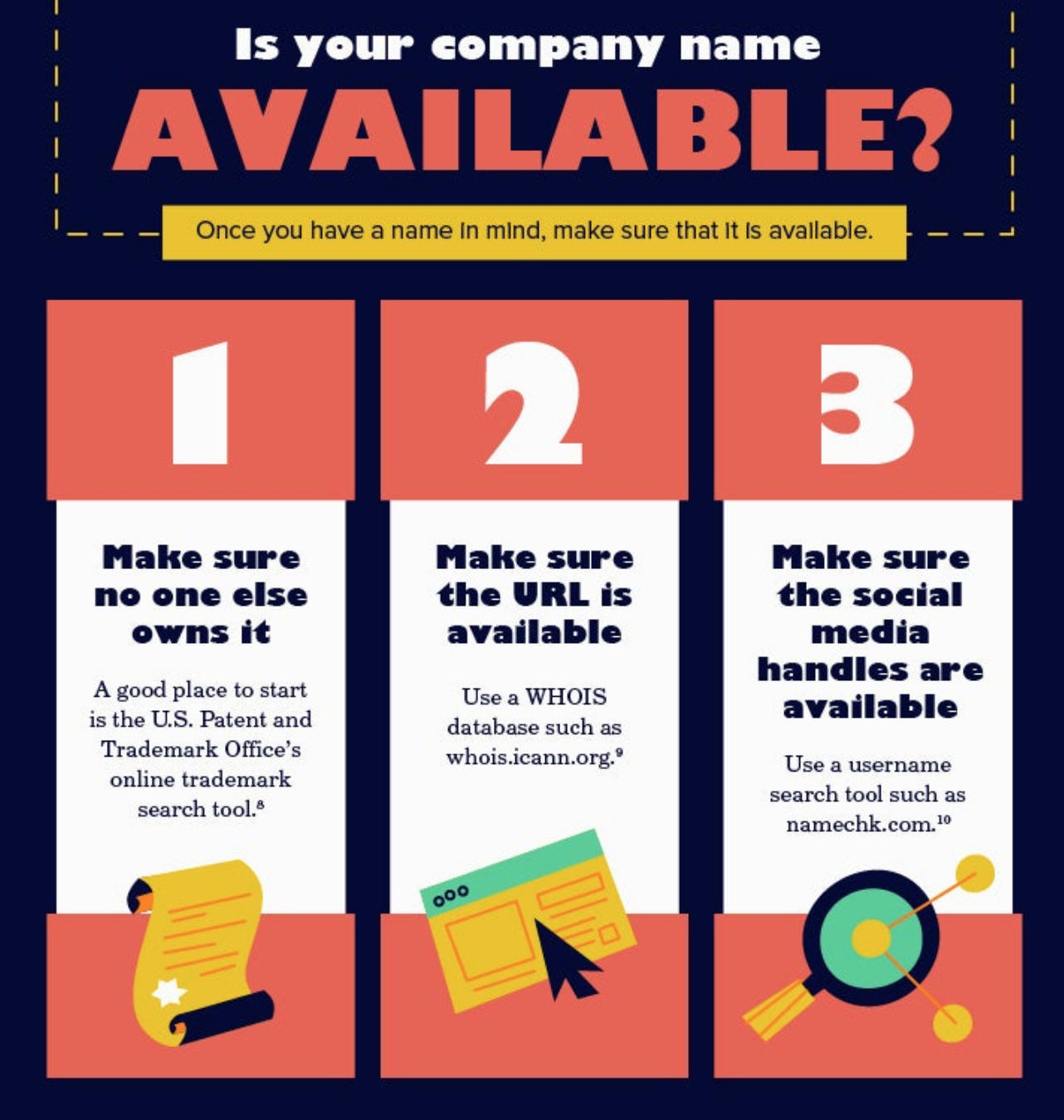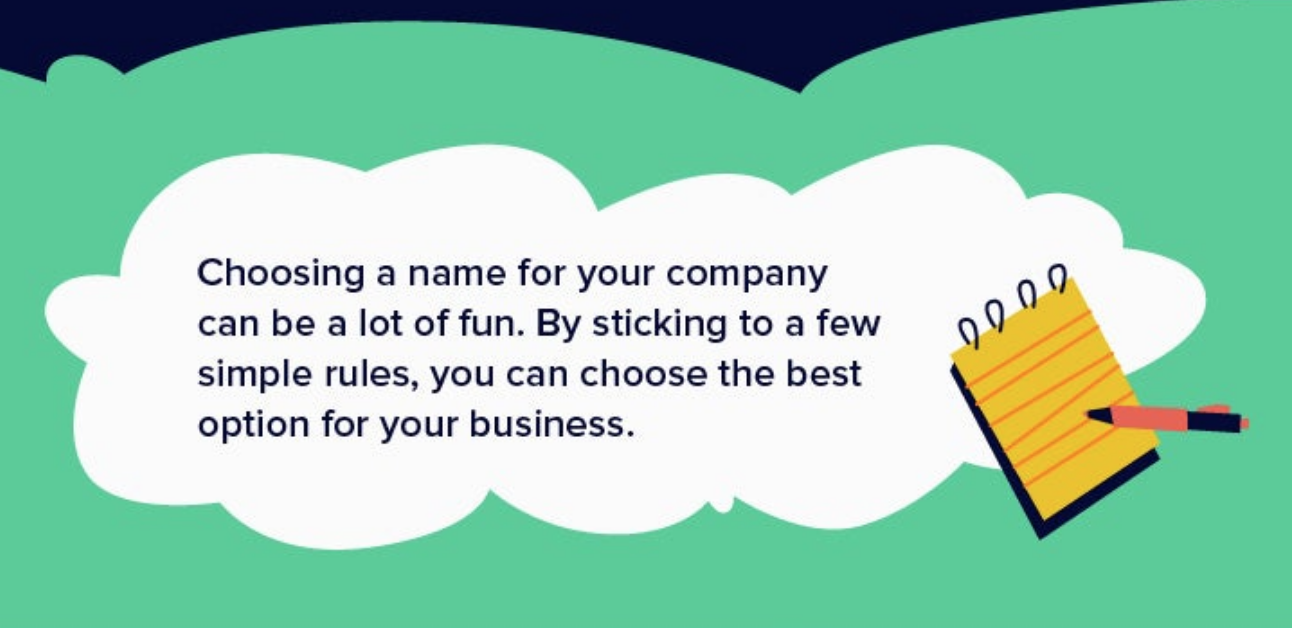Non-legal Considerations
Many entrepreneurs have a name already selected before they come see you. This selection is more often than not an emotional decision, not one that is made with important business considerations in mind. For instance, selecting “Bob’s Burgers and Grille” may not be a prudent decision if the entrepreneur plans on selling the company someday to someone not named Bob. What if the business fails? Does the entrepreneur want their name associated with that failure? I also am not a fan of names like “Bob and Son.” What if Bob’s son doesn’t want to continue with the business? What if Bob’s daughter wants to instead? Granted one can change the name but why not select something that makes sense at the start?
I advise entrepreneurs to avoid hard-to-remember or hard-to-spell names. Avoid names that limit the business growth or will not reflect the business as it expands. For example, as Richard Harroch in his Forbes article, “12 Tips for Naming Your Startup Business” points out, imagine if Jeff Bezos had “picked the name ‘Online Books’ instead of ‘Amazon’.”
Let’s look at this infographic made by Rose Leadem, The Do’s and Don’ts of Naming Your Business (Infographic)
Do pick a name that is simple and short. Long and confusing names can be difficult to remember and use. For example “Quantum Computer Services” is a bit of a mouthful. The owners changed it to America Online and finally A.O.L.
Don’t include place names unless your business will always be location specific. If you ever wish to expand your business to another area, it will confuse your customers. For example, “Manhattan Cleaners” might struggle to branch out to other locations.
Do find the story behind your name. A story gives your brand character, so you stand out from the crowd. For example, “Virgin” was named when Richard Branson’s team pointed out that they were all virgins at business.
Don’t pick a name that gives the wrong first impression. Your name may be the first thing potential customers see. Make sure it conveys your values and not just your purpose. For example, “Hump it & Dump It” specializes in trash removal, yet the name has negative connotations about how they might do the job.
Do try saying your business name out loud. If it’s difficult to pronounce, it will soon become a burden. For example, “Tokyo Tsushin Kogyo” was a bit of a tongue twister. They changed it to Sony instead.
Don’t get obsessed with S.E.O. keywords. They may be effective now, but Google’s algorithms evolve all the time. For example, “Wholesale Landscape Supply” might work for Google, but it’s not simple and memorable.
Do consider the meaning of your chosen name in other languages. If your product is meant to travel, It could become a laughingstock if It has a double meaning. Naming a company ‘Gift’ in the US, actually translates as poison in Germany.
Don’t use your own first or last name as part of the business name if the venture is very risky. Your real name Is for life; you don’t want It to be associated with failure. For example, Sir Clive Sinclair’s name conjures up images of early computing but also his failed electric vehicle invention, the Sinclair C5.
Do test it on other people. It Is Important to make sure your great name idea sounds just as good to potential customers. Amazon used to be called “Cadabra” but changed it to Amazon after a lawyer misheard it as “Cadaver”.
Don’t rule out abstract names. They focus on a feeling of what the business is about rather than specifics.
For example, Google takes its name from the mathematical term “googoľ” meaning 10 raised to the power of 100.
Do see how your company looks alongside other business names from the same industry. If your name Is too similar, you won’t stand out; too different, and people might not get what you do. For example, “Jerry’s Guide to the World Wide Web” is a bit longer than most web portal names. Its owners wisely changed it to Yahoo!, where it still stands out alongside Google and Baidu.
Don’t choose a name you don*t like. Even If everything seems right about It, trust your gut – you’re going to have to work with this name for a long time. For example, Hertz Rent-A-Car was originally called “DrivUrSelf” but they ended up changing the name, perhaps due to the difficult spelling.
Is your company name available? Once you have a name In mind, make sure that It Is available.
Make sure no one else owns it. A good place to start is the U.S. Patent and Trademark Office’s online trademark search tool.®
Make sure the URL Is available. Use a WHOIS database such as whois.icann.org.
Make sure the social media handles are available. Use a username search tool such as namechk.com.

